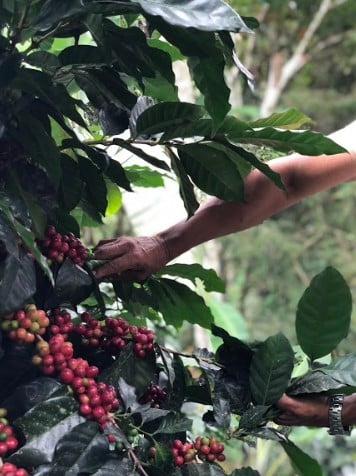
We walk into a coffee shop, order our coffee, drink it, and move on. We are set for the day. We have our caffeine, so now we can be productive. While it is just that simple to some, to others– not so much.
Coffee needs four key variables in order to grow to its fullest potential: Consistent Rainfall, Moderate Climate, Altitude, and Volcanic Soil. You may wonder, “Why isn’t coffee grown in the continental United States?” These four variables give you that answer. Between the Tropic of Capricorn and The Tropic of Cancer, runs the coffee belt. The coffee belt is where you will find the world’s largest coffee-producing nations. Within the belt, high altitude levels have moderate temperatures and mountainous regions have fertile soil. It’s a coffee plant’s dream.
Now, do you know what lies in the middle of the coffee belt?
The equator.
Do you know what country, when translated, means equator in English?
For coffee to be classified as “specialty”, it needs to be grown at altitude levels greater than 4,000 feet high. Thus, the further north you move in latitude, the more difficult this becomes. Think of the Rocky Mountains– it’s awfully cold 4,000 feet up!
In Ecuador, you have moderate temperatures at altitudes as high as 7,000 feet. One of Z Beans’ farms, the farm of Milton Rivadeneira, sits at 7,200 feet in elevation. His plants never experience frostbite and have grown to be robust and free of disease. Furthermore, his coffee plants, which are grown at these high altitudes, produce a denser bean due to less oxygen. These denser beans have more concentrated flavors.
Though Ecuador has never been known for its coffee industry, it is only a matter of time before it booms. The pristine growing conditions create a platform for farmers. Our goal is to support the hardworking farmers and create a platform for them. If we can increase awareness of the quality of Ecuadorian coffee, we will increase the quantity demanded. An increase in quantity demanded will spur many other positive benefits, like a decrease in unemployment rates.
So the next time you take a walk into the coffee shop, think about these factors. Do you know where your coffee comes from? Do you know your farmers?

Find more Z Beans Stories!
Facebook: @ZBeansCoffee
Instagram: @ZBeansCoffee
Storefront: 1635 Montpelier Avenue, Macon, Georgia 31201
Storefront: 311 Cotton Avenue, Macon, Georgia 31201